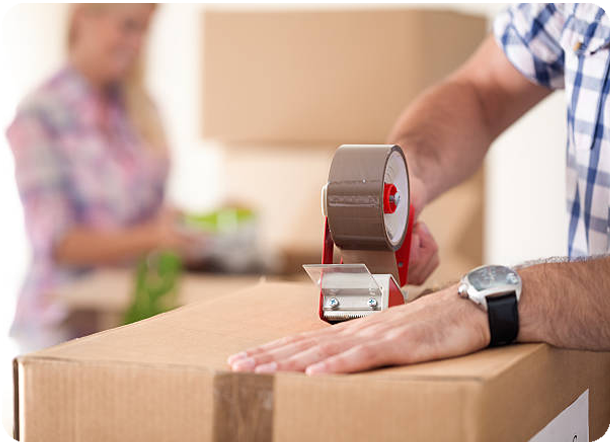Six Moving Hacks

A typical move would probably see suitcases packed with flat folded clothes, like you’re packing for a holiday. As long as your clothes don’t end up haphazardly stuffed into bags, or messily rolled into bunches, the flat pack method is the best method for most people.
For those who truly want to optimise their clothes packing space, there is a trick for getting your shirts and pants to take up as little space as possible. It’s called the ‘army roll’ or ‘ranger roll’.
Here’s a really simple video to follow, which includes extra tips for combining multiple shirts, pants and socks into a single roll.
This one might seem like a no-brainer, but you’d be surprised at how many moves produce piles of wrinkly and soiled laundry that could have been transported without incident.
The concept is very simple. For all the clothes that need to stay on hangers – nice dresses, suit jackets, button-ups etc – collect them in bunches of four to six, and wrap them entirely with a garbage bag. If you have garbage bags with drawstrings, tie these to the hangers to keep them firmly secured together. Otherwise, you could just use some string or a zip tie. This will give you bunches of protected laundry that you can stack and transport without fussing over.
Get creative about what you can use as packing material or as a packing aid or prop. There are many soft things you’ll need to transport anyway – old bed sheets, towels, carpets, mats, pillows, cushions etc – that could be used to wrap or protect other items.
For example, if you need to move a dishwasher, or a nice wooden dining table, wrap it with old bed sheets to keep it protected from other things jostling around while in transit. Use pillows and cushions to separate it from other heavy furniture and hold it secure.
Clean socks are a great way to supplement styrofoam peanuts or bubble wrap when packing fragile kitchen items like wine glasses. Old bits of junk mail, scrap paper, take-out menus – it’s all free packing material!
While we’re on the subject of reducing the cost of your move, you should consider hunting around for nearby shops that might be throwing out boxes.
Try bookstores, newsagents, furniture stores, hardware stores, and candle stores first – they’re the most likely to have a high turnover of cardboard boxes that are still in good condition and don’t smell. Failing that, you could always try a local supermarket or petrol station.
Chances are, if you turn up to any store and ask if they have used cardboard boxes they would be willing to part with, they’ll smile at you and say you’re the one doing them the favour.
Fair warning: once you discover the cardboard box industry is a lie, and you can score free boxes from pretty much anywhere, you may develop a tendency to go a little overboard. Try to get 5-10 more boxes than you think you’ll need, and stop there. You don’t want to end up in a situation where you’re having to move cardboard boxes full of flattened cardboard boxes, on top of your other stuff.
Cables tend to get away from us during a move, they get tangled, lost, and confused – and soon you end up with a box full of them, half of which don’t appear to be compatible with any of the devices in your house.
When it’s time to pack them away, roll them into a ring and bind them using bread ties, string, tape or just tie them in a knot. This way, when you want to plug in your TV at the new house, you won’t get into an argument about which cable belongs to which device.

